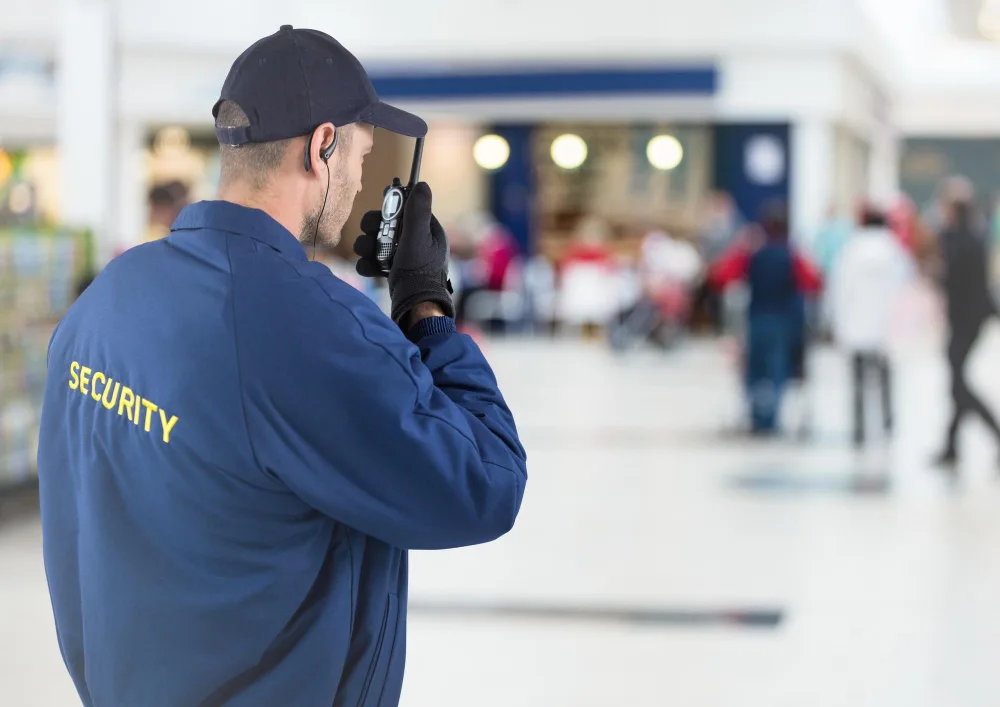Shockingly, gas station cashiers face a higher rate of workplace violence than almost any other profession, other than careers related to law enforcement. The reason for this is clear – gas stations are prime targets for criminal offenders.
Gas stations and convenience stores are targeted by criminals frequently because these establishments usually have ample cash, sell vice items like alcohol and cigarettes, and typically have lackluster security measures, too.
Considering this well-known fact, gas station owners are often highly scrutinized when it comes to providing enough security for patrons. If a serious incident does occur and someone winds up significantly hurt, then gas station negligent security cases can arise.
If you think you’ve recently been injured as a result of a lack of security at a gas station, then it’s important to know your legal options and rights. Learn more about gas station negligent security cases and how our firm can help you below.
An Overview of Negligent Security Cases
When you’re injured in a gas station incident as a result of inadequate security measures, your accident may fall under the scope of premises liability laws. Under premises liability laws, gas station property owners have a legal duty to provide for the care and safety of their patrons.
If adequate steps are not taken to ensure the safety of guests and someone does wind up getting hurt in an incident, then some legal liability could fall on the gas station owner’s shoulders. The gas station owner might be held financially responsible for the person’s losses if the injured person seeks out a civil claim.
Definition of Duty of Care
Under the law, gas station owners have a legal duty of care towards guests, but what exactly is this “duty of care?” This duty is a legal obligation to take reasonable steps to ensure the safety and well-being of anyone that is invited onto their property. This duty of care extends from the gas station itself into the parking lot area and any gas pump areas, too.
This legal duty of care exists to protect customers who expect a reasonable level of security when they go to a business or establishment.
When you go to a gas station, for instance, you don’t expect to trip and fall over broken asphalt. You also don’t expect to get attacked by a mugger when you enter a gas station bathroom.
Legal Obligation to Provide Adequate Security
Gas station owners can’t protect their customers from every type of incident, though, especially acts of violence committed by other customers. What is important to understand, though, is that owners do have an obligation to take reasonable steps to provide adequate security.
If a crime is reasonably foreseeable, then steps should be taken to prevent it. For instance, if the gas station has a separate bathroom area where attacks have occurred in the past, then that owner should take steps to protect future guests like installing a lock and key on the door and only giving the key to one person at a time. Gas station owners could also potentially add security cameras to the area and add adequate lighting to make the area less vulnerable to criminal activity.
Defining “Adequate” Security at Gas Stations
Often, gas station negligent security cases hinge on arguments over whether the measures taken by the gas station owner were sufficient or adequate. This determination is crucial because the injured individual will only be eligible to receive compensation if it’s determined that the gas station owner was negligent and did not provide adequate security.
What courts see as “adequate” security depends on several factors. In general, though, courts will assess whether another reasonable gas station owner in a similar position would have made the same decisions. If so, then the security was adequate. If not, then the security measures will be deemed inadequate.
Was the Crime Foreseeable?
As explained briefly above, the foreseeability of criminal activity is a major factor when it comes to determining what steps a “reasonable” gas station owner should take to protect customers.
Generally, certain types of crimes are foreseeable in gas stations, which usually operate at night. Adequate lighting should always be present at gas stations that are open overnight. Security cameras are also important security measures that protect both customers and gas station clerks.
Crime Rates in the Area
Another important consideration is the crime rates in the areas surrounding the gas station. If the crime rates are generally higher in the area, then gas station owners are expected to install more significant security measures. When crime is low, however, the standard for security measures is also reduced.
It also makes a huge difference whether criminal activity has taken place at the specific gas station, too. If criminal activity has already occurred at the location, then the gas station owner should have immediately installed better security measures after the ordeal.
Types of Reasonable Security Measures to Mitigate the Risk of Crime
While gas station owners can’t prevent crimes, they can take steps to mitigate the risks of crime. Here are just a few types of generally reasonable security measures that a gas station owner should take to help secure their property:
- Adequate lighting inside and outside of the store
- Locks on the store entrances
- Security cameras
- Visible gas station clerk on-duty while the store is open
- Regular security checks (checking pumps, bathrooms, etc.)
If violent crimes have repeatedly occurred at the gas station, then more serious measures may need to be taken. For instance, it might be necessary to employ two staff members on the overnight shift to protect each other. It might also be necessary to install security glass between customers and staff members at the register at night.
Consequences of Failing to Provide Proper Safety Measures
Gas station negligent security cases arise when these reasonable security measures aren’t in place and a security incident happens as a result. Sadly, the consequences of failing to provide proper safety measures can be substantial. Individuals injured in gas station attacks could suffer losses in the form of medical bills, lost wages, property damage, emotional distress, and pain and suffering. Even worse, violent crime can lead to the irreversible loss of life.
Common Types of Gas Station Negligent Security Claims
Gas station negligent security cases involve criminal attacks that could’ve been prevented or mitigated with the installation of proper security measures. The following types of attacks are some of the most common causes of these types of claims:
- Fatal homicides (shootings, stabbings, getting run over, etc.)
- Armed robbery
- Burglary
- Grand theft auto
- Assaults
- Sexual assault
- Battery
- Rape
- Identity theft from card skimmers
- Theft
- Muggings
- Other violent crimes
Do You Think Negligent Security Played a Role in Your Recent Gas Station Incident?
Were you recently harmed at a gas station due to inadequate security? Did your attack result in a host of financial losses? If so, then it might be worth your time and effort to consult with a negligent security attorney about your situation. We can suggest you checking out our pages dedicated for Atlanta negligent security lawyer and Sandy Springs negligent security lawyer.
After learning more about the facts surrounding your case and the circumstances of the incident, your lawyer will be able to help you determine if you have the basis to pursue a legal claim. Most gas station negligent security cases result in a significant settlement for the impacted individual, but your lawyer will help you avoid seeking out a claim if it’s not in your best interests or if it’s unlikely to result in a successful settlement.
If you’re interested in discussing your situation with an attorney, then we want to hear from you. Schedule a consultation with our firm now to get started.



